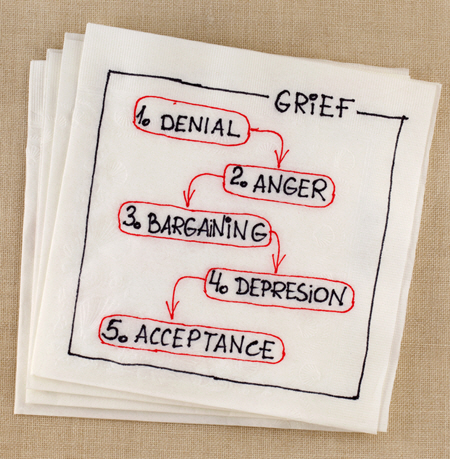 Whatever type of loss you’ve suffered…
Whatever type of loss you’ve suffered…
Divorce or loss of a relationship…
The shock is devastating. Over time the loneliness is palpable. Accepting that “they are gone” or “it is over” is new for you and not easy. Part of your life, this person is gone, and so is your life flow. Others try to help. The result is minimal compared to the pain you feel. You shrink socially. Dealing with people is the last thing on your mind.
Death of a pet…
You are looking around, and they are not there. Home feels empty. Your best friend has left you. You feel it. Others may not understand. After all, it’s not a human. You can’t accept a part of you is gone.
Loss of health…
This changes everything. A serious health event can leave you defeated. It’s hard to feel that life may never be the same. Am I strong enough to handle what is ahead? All or nothing thinking has you depressed.
Losing a job…
Angry. Embarrassed. Hopeless. Some of the tough feelings when your financial state is rocked. Where do I go from here? I can’t tell anyone. The loss of daily routine has you stuck.
A miscarriage…
Numbness. Disbelief. Anger. Guilt. Sadness. You feel strongly connected and can’t let go. You stretch to find someone to blame. How can I live with this terrible loss? How do you and your partner survive this? Waves of feelings flood you.
Retirement…
This is not what you expected. Is this what is left? I waited for this all my life. How do I find meaning in my life again?
A loved one’s serious illness…
Denial. I cannot lose you. “Caretaker” scares you. You have heard how hard it can be. What comes next is unknown. How much will things change?
I don’t want to lose myself. How can I make them feel better and take care of myself?
 There is no right or wrong way to grieve.
There is no right or wrong way to grieve.
You feel like you have to act a certain way or hide your true feelings due to others’ expectations. Maybe you feel guilty for your part in the loss. You avoid it altogether and are criticized for moving on.
On top of your loss is the pressure of fitting into the “grieving 101” mentality.
Yes, grieving is a process, and it does have stages. It would be easier if it was linear and fit into a neatly packaged box.
Yet grief is a complex set of emotions and reactions. The process can last a long time. It’s a series of loops. You can circle back to where you were years ago. One day you may have accepted the loss only to have it come out of nowhere the next and hit you with strong feelings.
It is a very individual process.
I am here to tell you to do it your way. I can help you.
 Coping with a loss is one of life’s biggest challenges.
Coping with a loss is one of life’s biggest challenges.
It involves deep sorrow.
You cry a lot and feel unstable. Emptiness, despair, loneliness, and yearning seep in. You would prefer it back the way it was. These are the most universally experienced symptoms of grief. You are in disbelief.
It’s emotionally overwhelming.
Denying seems easier. As you search for answers, anger, resentment and blame are the new you. It’s hard to validate your feelings, so you get down on yourself and feel like everything you do is wrong.
It can affect your physical health.
Mental anguish leads to bodily pain. Fatigue, nausea, weight issues, insomnia, aches, and pains. Why should you take care of yourself? You have no reason.
It might also make you very negative.
Black and white thinking, “what if,” and catastrophic thinking make your future look bleak. Add on anger, guilt, and regrets, and nothing looks positive. Hope is gone.
 Therapy can help.
Therapy can help.
Coming to terms with your loss…
Meet Chris*. We worked together to heal from the sudden loss of his job. Acceptance therapy helped him overcome denial and subsequent feelings of failure and letting down his family. Commitment therapy helped him minimize self persecution, focus on his strengths and get back into the job market. We used psychodynamic methods to analyze self-sabotage and recognize his role in the loss due to deeply rooted behaviors.
Easing your sadness…
Meet Tom*. He faced despair when his wife of 47 years was diagnosed with serious cancer. We worked on supportive therapy to give him special time to vent overpowering emotions he felt uncomfortable talking about. CBT helped him accept his anger and negativity. We validated his need to blame someone and processed a series of regrets. These made him feel like a bad spouse. Looking at polarized and catastrophic thinking patterns and implementing thought restructuring helped him maintain more grey area neutral thinking that helped to calm his fears and anxiety. Hesitant at first, Tom learned relaxation techniques to help his insomnia.
Understanding the stages of grief…
Meet Debbie*. She was struggling 6 years after her husbands passing and she did not understand why. She felt abandoned by family and friends as “no one wanted to hear it “anymore. She found herself angry at the world and lashing out at others. We worked on the education of the stages and supportive therapy to give her a space to trace her grief reactions. CBT helped us reverse irrational thinking that drove her strong behaviors. Allowing herself to see that she had done nothing wrong in her journey helped her find peace with where she was.
Developing healthy ways to cope…
Meet Gina*. Her parents divorced when she was young, and she struggled in young adulthood. We used psychodynamic techniques to process her interpretation of events that led to her serious mental health issues. Processing emotions in a safe space allowed her to understand the extent of pain from her father’s abandonment. Acceptance and commitment therapy helped her put the divorce into perspective and allowed her to move forward with her health and personal goals.
Finding new meaning in life…
Meet Lynn*. 8 years after her husband’s passing, she felt lost and constantly questioned herself. He had been a dominant and controlling figure in the marriage. Supportive therapy allowed her to process anger leaving her with a mess of bills, no access to his electronic technology, and no burial plans. We used strengths-based assessments to validate the great job she was doing with what she was left. CBT allowed us to reverse the anger towards herself that she did not speak up. We processed psychodynamically how her family of origin made it easy to fall into the patterns that she did. We added relaxation techniques to ease anxiety. Confidence allowed her to embrace her new life stage.
 Some common myths might discourage you from reaching out…
Some common myths might discourage you from reaching out…
“The pain will go away if I ignore it.”
Maybe going about your day works has worked for you in other areas of your life. This is different. And it is ok to put your grief away at times. Dismissing it is a temporary fix. Loss reactions can creep into your life when you do not expect them — even years later.
“It’s important to stay strong.”
Putting on a brave front seems like the right thing to do. Somehow, you feel you need to protect others by not showing your true feelings. Feeling sad, frightened, or lonely is typical. Holding your true feelings in will make grief harder for you in the long run.
“If I don’t cry, I am not sorry about the loss.”
Crying is a normal response but not the only one. You may have other ways of showing your sorrow, and that’s ok. This is a very individualized process; you deserve to determine how to do it.
“Grieving should only last a year.”
It’s hard to anticipate your grief cycle. It varies from person to person. It’s important to remember that it is yours and yours alone. You deserve the time you need to process your loss.
“Moving on means forgetting the loss.”
Think of moving on as acceptance of the event. It does not mean that you forget what happened. You can reinvent your life and keep sweet memories alive. These may be integral in defining the next stage of your life and help you build resilience.
I am sorry that you are suffering.
No matter your loss, it’s life-changing… and deserving of help.
Therapy can help you process what happened naturally… and be patient with yourself as you heal.
Please let me provide you with the consistency and support you need in this challenging time.
You’re in a safe place here. Call me today for your free consultation: (516) 446-8910.
*Names changed to preserve client confidentiality.

